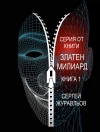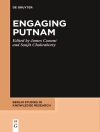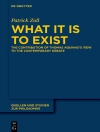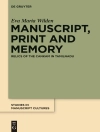This edited volume explores the interplay between philosophies in a wide-ranging analysis of how technological applications in science inform our systems of thought. Beginning with a historical background, the volume moves on to explore a host of topics, such as the uses of technology in scientific observations and experiments, the salient relationship between technology and mechanistic notions in science and the ways in which today’s vast and increasing computing power helps scientists achieve results that were previously unattainable.
Technology allows today’s researchers to gather, in a matter of hours, data that would previously have taken weeks or months to assemble. It also acts as a kind of metaphor bank, providing biologists in particular with analogies (the heart as a ‘pump’, the nervous system as a ‘computer network’) that have become common linguistic currency. This book also examines the fundamental epistemological distinctions between technology and science and assesses their continued relevance. Given the increasing amalgamation of the philosophies of science and technology, this fresh addition to the literature features pioneering work in a promising new field that will appeal both to philosophers and scientific historiographers.
Tabela de Conteúdo
Preface.- Contributors.- Part I. Introductory.- Preview; Sven Ove Hansson.- Chapter 1. Science and technology. What they are and why their relation matters; Sven Ove Hansson.-Part II. The technological origins of science.- Chapter 2. Technological thinking in science; David F. Channell.- Chapter 3. The scientific use of technological instruments; Mieke Boon.- Chapter 4. Experiments before science. What science learned from technological experiments Sven Ove Hansson.- Part III. Modern technology shapes modern science.- Chapter 5. Iteration unleashed. Computer technology in science; Johannes Lenhard.- Chapter 6. Computer simulations: a new mode of scientific inquiry?; Stéphanie Ruphy.- Chapter 7. Adopting a technological stance toward the living world. Promises, pitfalls and perils; Russell Powell.- Part IV. Reflections on a complex relationship.- Chapter 8. Goal rationality in science and technology. An epistemological perspective; Erik J. Olsson.- Chapter 9. Reflections on rational goals in science and technology. A comment on Olsson; Peter Kroes.- Chapter 10. The naturalness of the naturalistic fallacy and the ethics of nanotechnology; Maoro Dorato.- Chapter 11. Human well-being, nature and technology; Ibo van de Poel.- Chapter 12. Philosophy of science and philosophy of technology: one or two philosophies of one or two objects?; Maarten Franssen.












